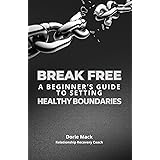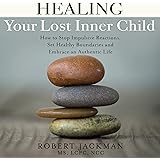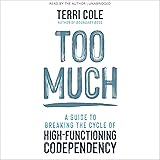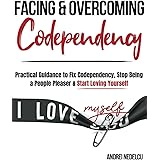The stark reality presented in the video above, depicting a “payday” turning into total financial loss within just “12 hours later” due to gambling, is a chilling scenario that resonates with far too many individuals. Studies consistently indicate that a significant percentage of those struggling with gambling addiction report experiencing severe financial distress, often spiraling into debt at an alarming rate. This rapid depletion of funds isn’t just a fleeting moment of bad luck; it’s a powerful illustration of how quickly problem gambling can dismantle financial stability and personal well-being.
The Alarming Speed of Losing Money in Gambling
The concept of a “payday” disappearing in half a day might seem extreme, yet it is a devastatingly common occurrence for those caught in the grip of problem gambling. What begins as entertainment or a small bet can quickly escalate into a compulsive behavior, where the drive to gamble overrides logical financial decisions. This rapid pace of losing money in gambling is often fueled by several factors, including the immediate gratification offered by many forms of gambling, the illusion of control, and the potent desire to “chase losses”—the misguided belief that one can win back what has been lost by gambling more.
The ubiquitous accessibility of online gambling platforms further exacerbates this issue. With casinos and betting sites just a click away on smartphones and computers, the barriers to impulsive gambling have significantly lowered. This constant availability means that a fresh paycheck can be wagered, and potentially lost, almost instantaneously, leading to profound regret and despair. The velocity at which funds vanish is a critical aspect of understanding the severity of this addiction.
Understanding the Mechanics of Problem Gambling
Problem gambling is not merely a financial issue; it is a recognized behavioral addiction. It shares many characteristics with substance abuse, including a growing preoccupation with the activity, a need to gamble with increasing amounts of money or frequency to achieve the desired thrill, and withdrawal-like symptoms such as irritability or anxiety when attempting to stop. The brain’s reward system plays a crucial role, releasing dopamine during gambling wins, which reinforces the behavior and makes it incredibly difficult to stop, even in the face of mounting losses. This neurological reinforcement contributes significantly to the challenge of breaking free.
The Psychological Trap: Chasing Losses and Cognitive Distortions
One of the most insidious aspects of problem gambling is the psychological trap of “chasing losses.” After experiencing the initial shock of losing money in gambling, individuals often feel an overwhelming compulsion to continue playing in an attempt to recoup their losses. This can lead to larger bets, longer sessions, and a complete disregard for pre-set limits or responsible financial planning. This behavior is frequently accompanied by cognitive distortions, where the gambler might irrationally believe they are “due for a win,” misinterpret near misses as actual wins, or vastly overestimate their skill and ability to predict outcomes. Such distorted thinking patterns make it nearly impossible to make rational financial decisions, perpetuating the cycle of loss.
Financial Fallout: Beyond the Initial Loss
While the immediate loss of a payday is severe, the long-term financial consequences of problem gambling can be catastrophic, extending far beyond the individual’s direct control. The initial loss is frequently just the beginning of a downward spiral that can include a range of serious financial challenges:
- **Accumulating Debt:** This can manifest as overwhelming credit card debt, taking out high-interest personal loans, borrowing extensively from family or friends, or even resorting to illicit loans.
- **Depletion of Savings:** Retirement funds, college savings accounts, and critical emergency funds are frequently targeted to finance ongoing gambling habits, leaving individuals and their families vulnerable.
- **Asset Loss:** Valuable personal assets such as homes, vehicles, and other possessions may be sold, pawned, or even foreclosed upon to generate gambling money.
- **Bankruptcy:** For many, the crushing weight of overwhelming gambling debts eventually leads to personal bankruptcy, which significantly impacts their credit score and financial future for many years.
- **Job Loss:** Decreased productivity at work, frequent absenteeism, and in some cases, workplace theft to fund gambling, can directly lead to unemployment and further financial hardship.
- **Strained Relationships:** Financial stress is a leading cause of conflict in relationships, often contributing to divorce or estrangement from family members who are also deeply impacted by the gambler’s financial woes.
The financial impact undeniably extends far beyond the individual gambler, affecting spouses, children, and other dependents who may face reduced quality of life, educational setbacks, and significant emotional distress.
Recognizing the Signs of Problem Gambling
Identifying problem gambling early can be crucial for effective intervention and successful recovery. While not an exhaustive list, some common indicators and behavioral changes often serve as red flags:
- Increasingly preoccupied with gambling, constantly thinking about past gambling experiences or meticulously planning future ventures.
- Needing to gamble with increasingly larger amounts of money to achieve the desired level of excitement or thrill.
- Repeatedly making unsuccessful efforts to control, cut back, or completely stop gambling.
- Feeling restless or highly irritable when attempting to cut down or stop gambling activities.
- Gambling as a primary way of escaping problems or relieving pervasive feelings of helplessness, guilt, anxiety, or depression.
- Persistently “chasing losses” after experiencing significant periods of losing money in gambling.
- Lying to family members, therapists, or other trusted individuals to conceal the true extent of involvement with gambling.
- Jeopardizing or outright losing a significant relationship, a valuable job, or an important educational or career opportunity because of gambling.
- Relying on others to provide money to relieve desperate financial situations directly caused by gambling activities.
Taking Control: Steps Towards Recovery and Financial Stability
For those who recognize themselves or a loved one in these descriptions, it’s vitally important to understand that recovery is not only possible but achievable. Taking the first step often involves acknowledging the problem and actively seeking help. Here are some actionable strategies that can be implemented:
**Self-Exclusion Programs:** Many gambling establishments and online platforms offer self-exclusion programs, allowing individuals to voluntarily ban themselves from gambling for a set period or even permanently. This is a practical and immediate step to create significant barriers to further gambling.
**Financial Management:** Implementing strict budgeting practices, involving a trusted person to manage finances (at least temporarily), and exploring comprehensive debt management plans are critical for regaining financial control. Freezing credit accounts can also prevent further impulsive borrowing, halting the cycle of accumulating debt.
**Building a Support Network:** Connecting with family and friends who understand and actively support the recovery process is invaluable. Sharing the struggle openly can significantly alleviate the burden of secrecy and provide much-needed accountability.
**Developing Healthy Coping Mechanisms:** Replacing gambling with positive activities, engaging in new hobbies, or incorporating regular exercise can effectively help manage stress and fill the void that gambling once occupied. Learning new relaxation techniques or mindfulness practices can also be highly beneficial for emotional regulation.
Seeking Professional Help for Problem Gambling
While self-help strategies are undoubtedly important, professional assistance is often necessary and highly effective for overcoming a gambling addiction. Mental health professionals specializing in addiction can offer a range of targeted interventions:
- **Cognitive Behavioral Therapy (CBT):** This widely recognized therapy helps individuals identify and actively change problematic thought patterns and destructive behaviors directly related to gambling.
- **Motivational Interviewing:** A therapeutic approach that helps individuals explore and resolve their ambivalence about behavior change, effectively encouraging them to find their own intrinsic motivation to recover.
- **Support Groups:** Groups like Gamblers Anonymous (GA) provide a safe, anonymous, and understanding environment for individuals to share their experiences and support each other through the challenging journey of recovery.
- **Medication:** While not a primary treatment for gambling addiction itself, certain medications may be used to effectively address co-occurring conditions such as depression or anxiety, which frequently accompany problem gambling.
The journey to recover from the devastating cycle of losing money in gambling requires immense courage and unwavering commitment, but the benefits—including restored financial health, improved relationships, and a profound renewed sense of self-worth—are truly immeasurable and profoundly life-changing.











